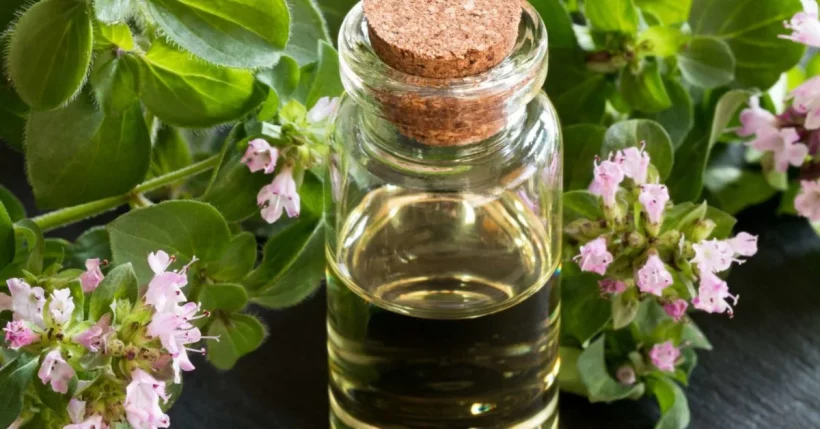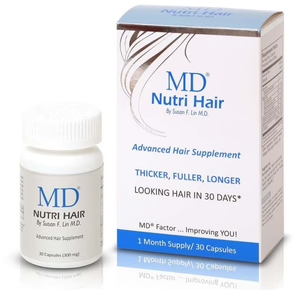Oregano oil is derived from the leaves and flowers of the oregano plant, native to Europe, Asia, and North Africa. It contains compounds such as carvacrol and thymol, which are known for their antimicrobial properties. Here are some potential health benefits and side effects of oil oregano:
Health benefits:
Antimicrobial properties:
Oil of oregano has been shown to have strong antimicrobial properties, which may help to fight bacterial, fungal, and viral infections.
Oil of oregano is known for its potent antimicrobial properties, which have been studied extensively in recent years. The active ingredient in this essential oil, carvacrol, has shown to be effective against a wide range of microorganisms, including bacteria and fungi. It works by disrupting the cell membrane of these pathogens, ultimately leading to their death.
These antimicrobial properties make oil of oregano an excellent natural remedy for various ailments. For example, it has been found to be beneficial in treating respiratory infections such as bronchitis and sinusitis. Additionally, it can help combat fungal infections like candida overgrowth.
Despite its many health benefits, it’s important to note that oil of oregano should not be used as a substitute for prescribed medication without consulting with a healthcare professional first. Additionally, excessive consumption can cause adverse effects such as stomach upset or irritation. Overall though when used correctly oil of oregano is an excellent natural option for those looking to boost their immune system and fight off harmful pathogens effectively.
Anti-inflammatory effects:
Oil of oregano contains compounds that may help to reduce inflammation in the body, which may be beneficial for conditions such as arthritis and asthma
Oil of oregano is known for its powerful anti-inflammatory effects. It contains compounds, such as carvacrol and thymol, that have been found to significantly reduce inflammation in the body. Inflammation is a natural response to injury or infection but when it becomes chronic, it can contribute to the development of several health conditions including arthritis, heart disease, and certain types of cancer.
Research has shown that oil of oregano may be effective in reducing inflammation associated with various conditions. For instance, a study published in the Journal of Medicinal Food found that taking oregano oil capsules reduced levels of inflammatory markers in patients with osteoarthritis. Another study showed that applying oregano oil topically reduced swelling and pain associated with rheumatoid arthritis.
In addition to its anti-inflammatory properties, oil of oregano also exhibits antimicrobial activity which makes it useful in fighting off infections caused by bacteria and fungi. Its ability to reduce inflammation and fight infections makes it a valuable tool for improving overall health and preventing chronic diseases.
.
Antioxidant effects:
The antioxidants found in oil of oregano may help to protect the body against damage from free radicals, which are unstable molecules that can cause cellular damage and contribute to aging and disease.
hymol that have been shown to neutralize free radicals in the body.
Research has suggested that oregano oil may also help improve immune function by reducing inflammation in the body. Chronic inflammation has been linked to many health problems, including autoimmune disorders and cardiovascular disease. By reducing inflammation, oregano oil may help promote overall health and wellness.
In addition to its antioxidant properties, oregano oil has also been found to have antimicrobial effects against a variety of harmful bacteria and viruses. This makes it a popular natural remedy for treating infections like colds, flu, sinusitis, and other respiratory tract infections. The combination of these benefits makes oil of oregano a valuable supplement for maintaining optimal health.
Digestive health:
Some studies suggest that oil of oregano may have a positive effect on digestive health, by helping to reduce symptoms such as bloating, cramping, and diarrhea.
Oil of oregano has been known for its digestive health benefits. The oil contains compounds such as carvacrol, thymol, and rosmarinic acid that have antimicrobial and anti-inflammatory properties. These properties help to kill harmful bacteria in the gut, reduce inflammation, and promote healthy digestion.
Oil of oregano can also help to relieve symptoms associated with gastrointestinal disorders such as bloating, gas, diarrhea, and constipation. Its antispasmodic properties aid in relaxing the muscles of the intestine thus helping in reducing abdominal pain.
However, it is important to note that taking high doses of oil of oregano for extended periods can lead to adverse effects like upset stomachs or allergic reactions. It is always best to consult a healthcare professional before using this oil as a supplement or treatment option for digestive issues.
Side effects:
Digestive upset:
Some people may experience digestive upset, such as nausea or stomach pain, when taking oil of oregano.
Digestive upset is a common condition that can be caused by various factors such as stress, unhealthy eating habits, and bacterial infections. One natural remedy that has been gaining popularity in recent years for its potential digestive benefits is oil of oregano. This powerful essential oil contains carvacrol and thymol, two compounds known for their anti-inflammatory and antimicrobial properties.
Oil of oregano may help to soothe digestive discomfort by reducing inflammation in the gut and killing harmful bacteria that can cause stomach upset. It has also been shown to promote healthy digestion by increasing the production of digestive enzymes and bile acids. However, it’s important to note that oil of oregano should not be used as a replacement for medical treatment if you are experiencing persistent or severe digestive issues.
If you decide to use oil of oregano for its potential digestive benefits, it’s best to start with a small dose and gradually increase it over time. Some people may experience side effects such as nausea or an upset stomach when taking too much too quickly. As always, it’s important to speak with your healthcare provider before adding any new supplements or remedies to your health regimen.
Also Read: wellhealthorganic.com:11-health-benefits-and-side-effects-of-olives-benefits-of-olives
Skin irritation:
Oil of oregano is a potent oil and may cause skin irritation when applied topically, particularly if used in high concentrations.
Skin irritation is one of the most common side effects of using oil of oregano. This can manifest as a rash, redness, or itching sensation on the skin. While these symptoms are usually mild and go away on their own after a few hours, some people may experience more severe reactions such as blistering or swelling.
To minimize the risk of skin irritation when using oil of oregano, it is important to dilute it with a carrier oil such as coconut or olive oil before applying it topically. It is also important to perform a patch test on a small area of skin before using the oil more extensively.
If you do experience skin irritation after using oil of oregano, stop use immediately and seek medical attention if necessary. It’s always best to err on the side of caution when dealing with any potential health issues.
Interaction with medications:
Oil of oregano may interact with certain medications, including blood thinners and medications used to lower blood sugar levels.
When it comes to using oil of oregano, it’s important to be aware of any potential interactions with medications. This natural remedy has the ability to affect the body in various ways, and can potentially impact how certain medications work.
One medication that may interact with oil of oregano is blood thinners. Since oil of oregano can also act as a blood thinner, combining it with medication that has the same effect could increase the risk of bleeding or bruising. It’s important for individuals taking blood thinners to speak with their healthcare provider before using oil of oregano.
Additionally, those who take medication for high blood pressure should exercise caution when using oil of oregano. This essential oil can lower blood pressure levels, which could result in complications if used in conjunction with hypertension medication. As always, consulting a healthcare provider prior to use is recommended to ensure safe and effective use of this natural remedy.
Allergic reactions:
Some people may have an allergic reaction to the oil of oregano, which may cause symptoms such as hives, itching, or difficulty breathing.
Allergic reactions to oil of oregano are rare, but possible. Symptoms may include skin irritation or rash, difficulty breathing or swallowing, and swelling of the mouth or throat. If any of these symptoms occur after using oil of oregano, it is important to seek medical attention immediately.
It is also important to note that some individuals may be allergic to other plants in the same family as oregano, such as basil, mint, or thyme. It is recommended that those with known allergies to these plants avoid using oil of oregano.
If you are unsure whether you are allergic to oil of oregano or any related plants, it is best to do a patch test before use by applying a small amount on your skin and waiting 24 hours for any signs of an adverse reaction. As with any herbal supplement or remedy, it is always best to consult with a healthcare professional before use.
It is important to consult with a healthcare professional before taking oil oregano, particularly if you are pregnant or breastfeeding, have a medical condition, or are taking medications. It is also important to use caution when applying oil oregano topically and to dilute it with a carrier oil before use.
Conclusion
In conclusion, oil of oregano offers a wide range of health benefits and has been used for centuries to treat various ailments. From its antibacterial properties to its ability to reduce inflammation, it is clear that this essential oil has much to offer. However, it is important to keep in mind that like any natural remedy, there are also potential side effects and risks associated with using oil of oregano.
Before using this essential oil, it is important to consult with a healthcare professional or do your own research on proper usage and dosages. Additionally, if you have any allergies or medical conditions, it is best to avoid using this oil altogether. Overall, while the benefits of oil of oregano are promising, caution should always be exercised when using natural remedies as they can interact with medications and cause adverse reactions in some individuals.
In summary, oil of oregano can be a valuable addition to your natural medicine cabinet but should be used responsibly and with care. As always, listen to your body and seek professional advice if you have any concerns or questions about incorporating this essential oil into your health routine.
FAQ
Q: What are the potential health benefits of oil of oregano?
A: Oil of oregano may have antimicrobial, anti-inflammatory, antioxidant, and digestive health benefits.
Q: What are the potential side effects of oil of oregano?
A: Some potential side effects of oil of oregano include digestive upset, skin irritation, interactions with medications, and allergic reactions.
Q: Can oil of oregano be used topically?
A: Yes, oil of oregano can be applied topically, but it should be diluted with a carrier oil before use to avoid skin irritation.
Q: Can the oil of oregano be taken internally?
A: Yes, oil of oregano can be taken internally, but it is important to consult with a healthcare professional before doing so.
Q: Can oil of oregano interact with medications?
A: Yes, oil of oregano may interact with certain medications, including blood thinners and medications used to lower blood sugar levels.
Q: Is the oil of oregano safe for pregnant or breastfeeding women?
A: Pregnant or breastfeeding women should consult with a healthcare professional before using oregano oil.
Q: Can children use oil of oregano?
A: It is not recommended for children under the age of 12 to use oil of oregano, as it may be too strong for their systems.
Q: How should the oil of oregano be stored?
A: Oil of oregano should be stored in a cool, dark place away from heat and light. It should also be kept out of reach of children.















